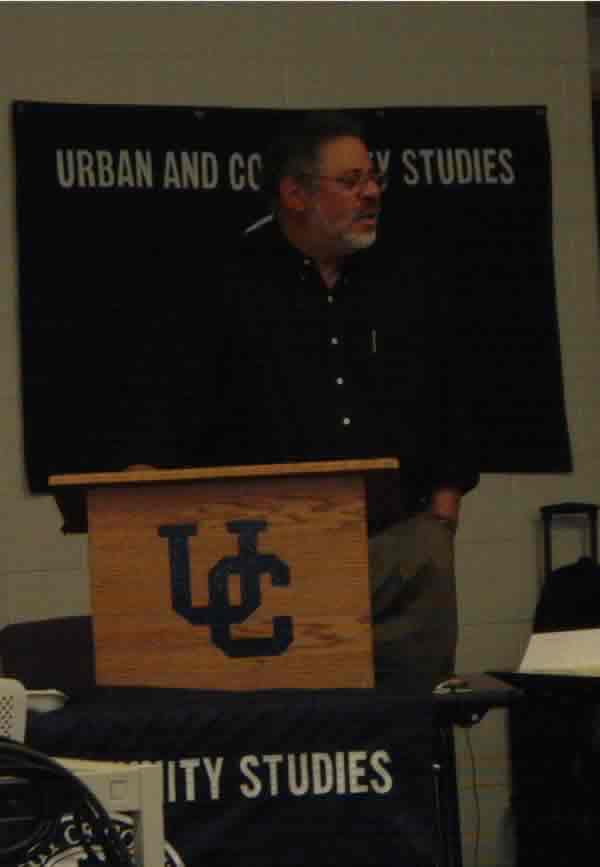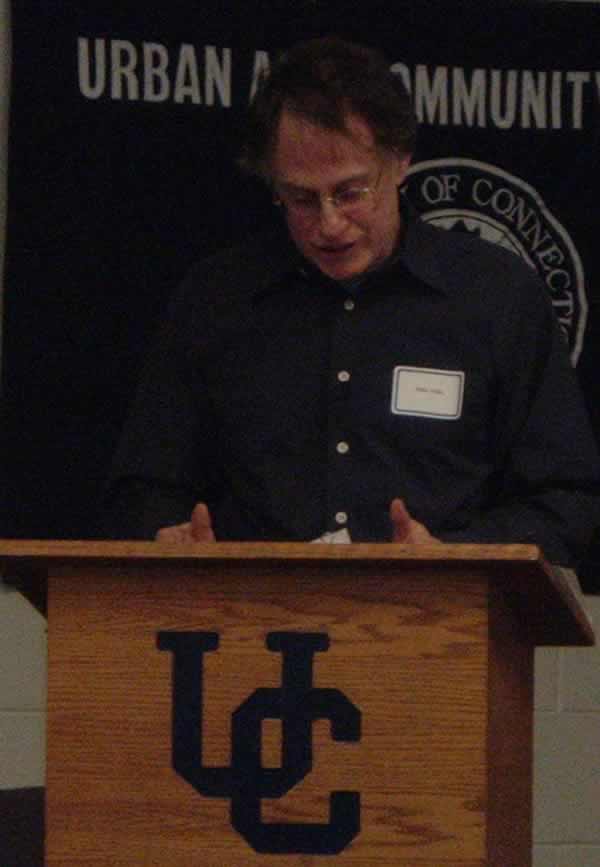Hartford I arrived as Peter Drier from Occidental College finished his paper and Frances Fox Piven from GUNY presented her views on the tensions between protest and electoral politics. The fur was flying in the genteel manner of the academy. It was a wonderful experience to be a “fly on the wall,” as serious thinkers worried hard over the issues and challenges of the ACORN experience. I felt like I was watching others walk in my shoes and try to see if there were other — or better — paths. Exhilarating!
Gary Delgado, director of the Applied Research Center, and the benchmark author on ACORN through his PhD dissertation which was published as Organizing the Movement: The Roots and Growth of ACORN, is a case in point as he presented his perspectives on ACORN twenty years after his book. He gave his top ten list of distinguishing characteristics of ACORN. I was scribbling quickly, but here’s what I caught of Gary’s remarks:
1. ACORN still organizes the poor.
2. ACORN continues to be multi-racial and multi-ethnic.
3. ACORN has challenged the fetish of “localism” by building at larger levels.
4. ACORN collaborates directly with labor in deep alliances.
5. ACORN is willing to experiment and take risks
6. ACORN is willing to “write things down” and clarify objectives and results.
7. ACORN has the ability to develop independent resources.
8. ACORN has “politics on top” and has been deeply electoral which is unique.
9. ACORN is “internationalizing” organizing.
10. ACORN is “ready to ride” and adapts to changing times.
Gary followed with several things he believed that ACORN needed to do in order to be rough and ready for the future.
* Grow past “chapters” which he believed were not sufficient for the future
* Reach out better to coalesce with “less powerful allies”
* Extend the issue reach from economics to more powerfully “social” issues (especially dealing with the war in Iraq as one example)
* Help create “big head” space to think about the work and build on the fact that ACORN though not ideological was at least “not anti-intellectual.”
See what I mean? Heavy stuff! Lot’s of serious comment and advice, criticism and respect with good — and tough — love.
The papers and the research reports continue today in Hartford. The whole affair has been webcast, so anyone can access the work live or on archives at the website.
It’s been worth it to me, and I’m betting it will make you think, too.
December 7, 2005
Gary Delgado addressing the ACORN research conference
John Atlas talking about NY ACORN and Atlantic Yards

